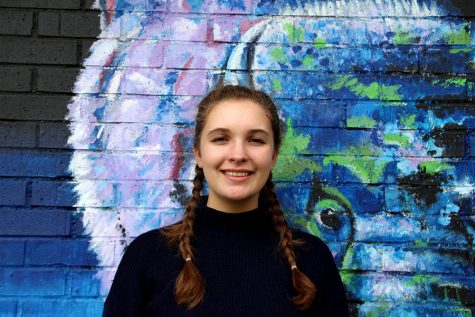March against Line 3 draws students and residents alike
On Thursday September 28th, several students joined hundreds of Minnesotans to protest the proposed Line 3 pipeline. Many protestors argue that this pipeline will threaten Minnesota’s clean water. “Love water, not oil!”, chanted protestors. Photo: Livia Lund
September 29, 2017
On Thursday, September 28th, several hundred people marched through Downtown St. Paul to protest the proposed Line 3 pipeline. The proposed pipeline would travel through northern Minnesota and replace an already-existing pipeline. However, those opposed to the pipeline argue that the pipeline’s different route and larger diameter should qualify Line 3 as a new line.
The march culminated in a public hearing at a InterContinental Hotel. Several South students attended and many South members in attendance were part of South’s environmental group, “Green Tigers”.
The Line 3 pipeline has been proposed by Enbridge, the same company that owns the Dakota Access Pipeline. In the past many South students have protested the DAPL, and last October several All Nations students led a walkout in protest.
The Line 3 protest march began at the Minnesota Capitol in downtown St.Paul. Beforehand, several people spoke including tribal leaders, religious leaders, Youth Climate Intervenors, and property-owners close to the proposed pipeline’s route. One tribal spokesperson, Black Shawl Woman, said “the courts have failed us continuously, and it’s up to the people right now to stand up and fight back against the corporate greed that continuously inflicts genocide on our people.”
Many South students felt passionate about the pipeline as well. “We don’t need it; it’s not that important, and it’s harming other people’s way of life… [an oil leak] would destroy the wild rice which is an important part of [Indigenous] culture and community,” said South junior Will Danaher. “It’s just not right,” senior Ted Jorstad, a Green Tigers member added.
After the mile-long march, a few students stayed to listen to public testimonies. Minnesotans on either side of the debate shared their stories, ideas, and opinions. Many supporters of the pipeline highlighted the jobs it could provide and the importance of fossil fuels in our current economy.
Opposition to the pipeline focused on the long-term impact of the fossil fuel industry and the impacts of the pipeline on Native populations. One speaker at the anti-pipeline rally, Ojibwe woman Tara Houska, said: “These are our lakes, our waters, our wild rice, our culture… this matters for all of us… We have to say climate change is not on its way, it’s here. It’s here. People are dying right now.”
Public hearings will continue across the state. Then the judge will make a recommendation to the Public Utilities Commission (PUC) who will decide on the proposed pipeline this April.






